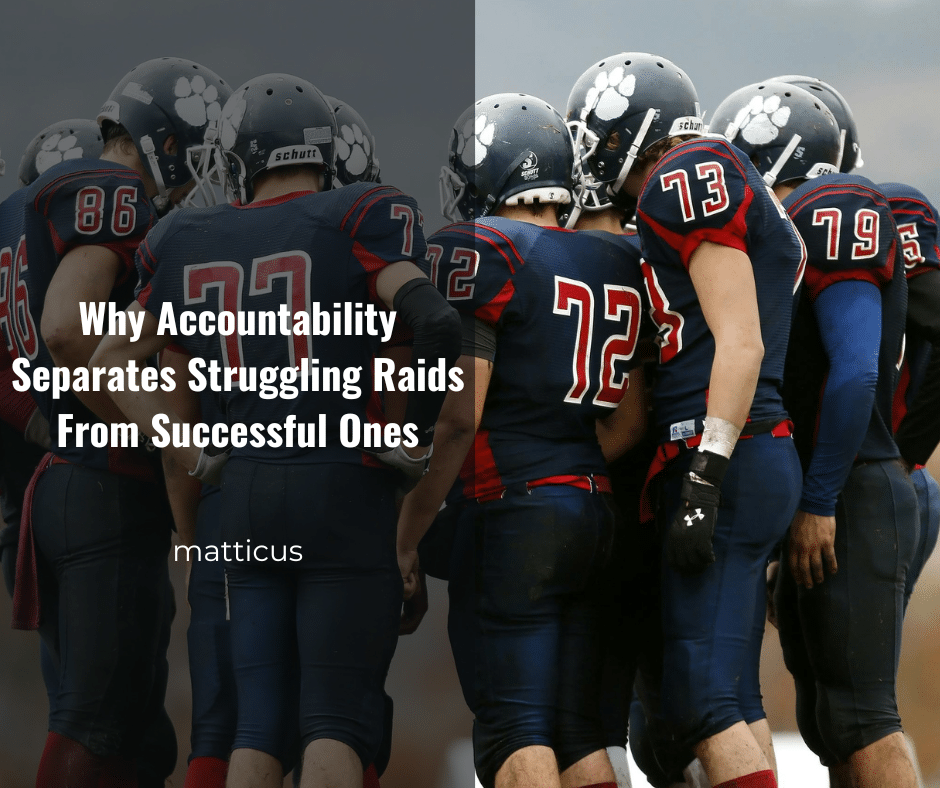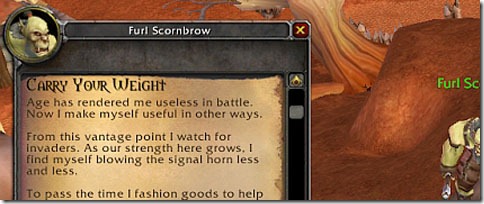Let me set the scene.
We’re working on Stix, grinding through progression pulls. It’s one of those nights where every inch of progress feels hard-earned. We’ve got the opening sequence mostly down, but it’s still not quite clean.
During the Sorting mechanic, one of the Scrapmasters doesn’t get picked up. It stays locked onto one of our players before it promptly one-shots them, just like that. Wipe.
Frustrating, but it happens.
I ask, “Who had that zone?”
Silence.
No one admits it.
That, more than the actual mistake, is what annoys me the most. We talk a lot about being a team, being accountable, and supporting each other through progression. But in that moment, no one wanted to own up to it.
And that’s a problem.
Mistakes happen, especially in a fight as chaotic as Stix. But when nobody takes responsibility, it makes progression a whole lot harder. Instead of figuring out what went wrong and moving forward, we’re stuck spinning our wheels, digging through logs, and wondering why no one spoke up.
So, how do we fix that? How do we build a raid team where owning mistakes isn’t seen as a weakness, but a sign of progress?
Why Accountability Matters in a Raid Team
In a raid environment, especially on the road to Cutting Edge, accountability is everything. It’s not just about calling people out; it’s about creating a space where players feel comfortable owning their mistakes, learning from them, and adjusting.
Here’s why it’s so important:
- Efficiency: Owning mistakes saves time. Instead of combing through logs to figure out who missed an interrupt, we know right away.
- Team Trust: When players feel safe admitting they messed up, others are more likely to follow suit. It creates an environment where everyone is working toward the same goal—getting the boss down.
- Growth Mindset: Mistakes are part of learning. If you’re too busy covering up what went wrong, you miss the chance to grow from it.
- Cohesion: A team that communicates openly about mistakes is more resilient. It’s not about pointing fingers; it’s about learning together.
Why Players Don’t Own Up
It’s easy to say, “Just take responsibility.” But in reality, there are a few reasons why raiders might hesitate:
- Fear of Judgment or Punishment: No one wants to be the reason for a wipe or feel like they’ll be benched for admitting a mistake.
- Embarrassment: Some players feel ashamed of making an error, especially in front of 19 other people.
- Not Realizing They Messed Up: Sometimes it’s not intentional. Players genuinely don’t know it was their fault.
- Lack of Trust in Leadership: If mistakes are used as ammo to criticize rather than teach, players will stay silent.
As a raid leader, I must set the tone that mistakes aren’t something to hide. They’re something to learn from.
Tools That Reinforce Accountability (Without Making It a Witch Hunt)
We’re lucky to have plenty of tools that help us understand what went wrong during a fight. But how we use those tools makes all the difference.
- Warcraft Logs: Essential for digging into what actually happened, but not the first tool to whip out like a prosecutor building a case.
- Warcraft Recorder: Sometimes players don’t know they made a mistake. Reviewing footage clears up confusion and helps them see what went wrong from their own perspective.
- Individual Check-ins: If someone’s consistently struggling but never admits it, a private message can encourage them to speak up without feeling exposed.
- Group Debriefs: Focus on general improvements first. Use “we” language instead of “you” to avoid singling anyone out.
How to Encourage Players to Own Mistakes
- Lead by Example: If I mess up a callout or make a bad judgment, I admit it. Setting that precedent makes it clear that everyone, including the raid leader, is accountable.
- Praise Honesty: When a player speaks up about a mistake, thank them. That positive reinforcement builds the habit.
- Private Guidance: For players who might feel shy or worried about public shame, I reach out one-on-one to discuss what happened.
- Reframe Mistakes as Learning: Instead of saying “You messed up,” I focus on “Here’s how we can handle this better next time.”
- Set Clear Expectations: At the start of progression, I remind the team that it’s okay to make mistakes as long as we’re honest about them.
Handling Genuinely Unaware Mistakes
Sometimes, players genuinely don’t know they were the one who missed a mechanic or misused a cooldown. When that happens:
- Be Specific: Instead of asking vague questions, point to the exact moment. “Who was in X zone when Y happened?”
- Show the Replay: Use Warcraft Recorder to clarify the moment without being accusatory.
- Teach, Don’t Scold: If they didn’t realize it was their fault, it’s a teaching moment. Make it clear it’s about improvement, not blame.
Building a Culture of Preparation, Not Perfection
Accountability is about more than just admitting mistakes. It’s also about building a mindset that values growth over perfection.
As raid leaders, we have to model that change. If we’re transparent, consistent, and patient, it sets the pace for everyone else. Inspire improvement by celebrating small wins—like hitting a new phase, sticking to the raid plan, or seeing consistent progress on mechanics.
If your leaders and core players model accountability, others will follow. You can’t expect players to take ownership if they never see it from the top.
We Didn’t Fail, We Just Learned One More Way Not to Kill the Boss
Creating a culture of accountability takes time. It’s about fostering trust, consistency, and a mindset that treats mistakes as stepping stones.
We have to be relentless about moving forward. That means inspiring improvement and being patient with progression. If we can shift the focus from blame to growth, our team will be stronger for it.
Because in raiding, it’s not about never wiping—it’s about learning how to wipe better each time until the boss finally falls.

